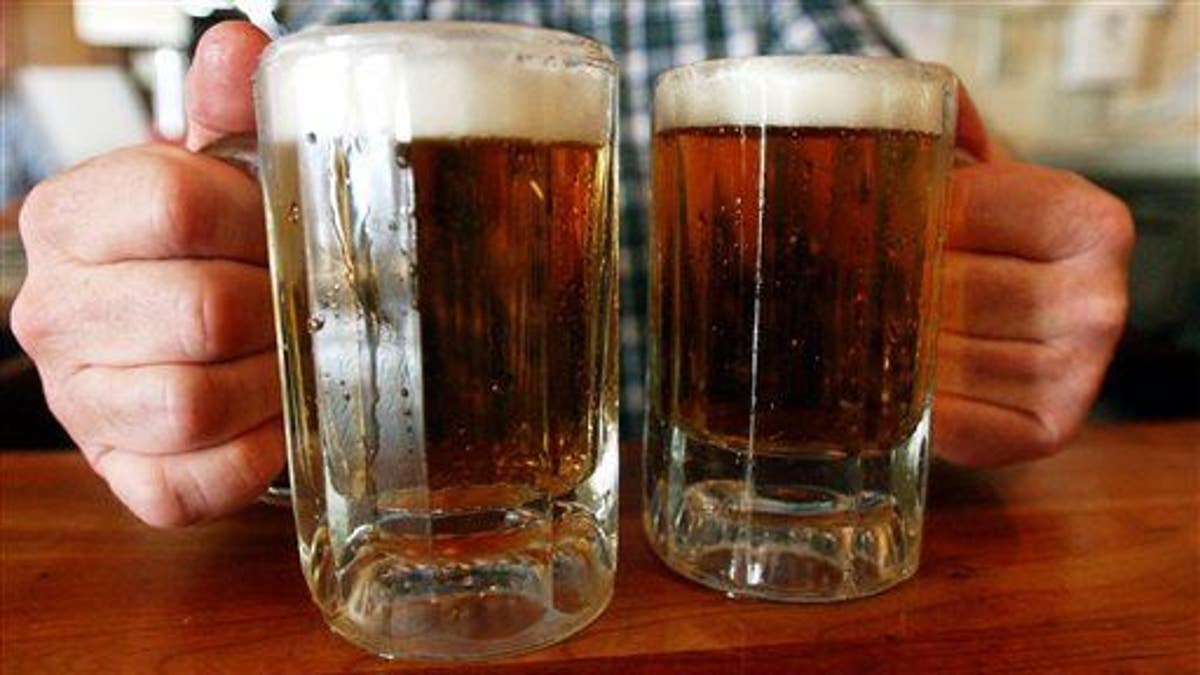
Researchers say the link appears to be genetic. (AP Photo/Toby Talbot, File)
People with early Alzheimer's disease who consumed light to moderate amounts of alcohol every day were less likely to die during a recent one-year study, researchers found.
"These results are somewhat surprising because Alzheimer's disease is a neurodegenerative disease and we know that alcohol can have harmful effects on the brain," said lead author Dr. Sine Berntsen of the University of Copenhagen in Denmark. "On the other hand we have seen in earlier studies that alcohol in light to moderate amounts can have a protective effect on cardiovascular disease and mortality in healthy adults."
The researchers used data from a previous study designed to assess a 12-month psychosocial counseling and support program for people with early-stage Alzheimer's. That study followed 321 participants in Denmark during the year-long program and for three years afterward, with study authors collecting data from patients' primary caregivers about lifestyle factors, such as how many drinks each patient tended to have per day.
Less than 10 percent of people did not consume alcohol at all, while about 70 percent drank about "one unit" of alcohol per day. One unit is equivalent to 10 milliliters of pure alcohol, one third of a pint of beer or one half of a glass of wine.
About 17 percent of participants drank two to three units per day, while less than 5 percent drank more than three units daily.
During the four-year study, 53 of the 321 participants died.
People diagnosed with Alzheimer's disease have an average life expectancy of eight to 10 years, Berntsen said.
Those who had two to three units per day had a 77 percent lower risk of death than those who had one or fewer units per day after accounting for gender, age, education and smoking, the researchers reported in BMJ Open.
"We cannot say for certain what the explanation behind this is," Berntsen told Reuters Health by email. "Earlier studies on alcohol and mortality in healthy subjects have proposed different explanations for reduced mortality with light-to-moderate alcohol intake such as reduced risk of cardiovascular disease, modification of inflammation and increase in insulin sensitivity."
People with moderate alcohol intake may have a richer social environment, which may itself have benefits, Berntsen said.
Moderate alcohol consumption has positive effects on cardiovascular disease risk and cholesterol, said Dr. Siegfried Weyerer of the Central Institute of Mental Health in Mannheim, Germany, who was not part of the new study.
"I cannot see any reason why patients with mild Alzheimer's disease who consume alcohol responsibly should not have those health-related benefits including higher life expectancy," Weyerer told Reuters Health by email.
But long-term alcohol abuse leads to excess mortality, is detrimental to memory and can cause neurodegenerative disease, he added.
"Guidelines on Alzheimer's disease management advise against excessive alcohol consumption as a secondary preventive measure, but we have not been able to identify any guidelines concerning light-to-moderate alcohol consumption," Berntsen said.
On the basis of this study, doctors can neither encourage nor advise against moderate alcohol consumption in Alzheimer's patients, she said.
Older people who do not drink alcohol shouldn't start now based on this study, but those who do enjoy alcohol in moderation may derive some benefit from it, Weyerer said.








































